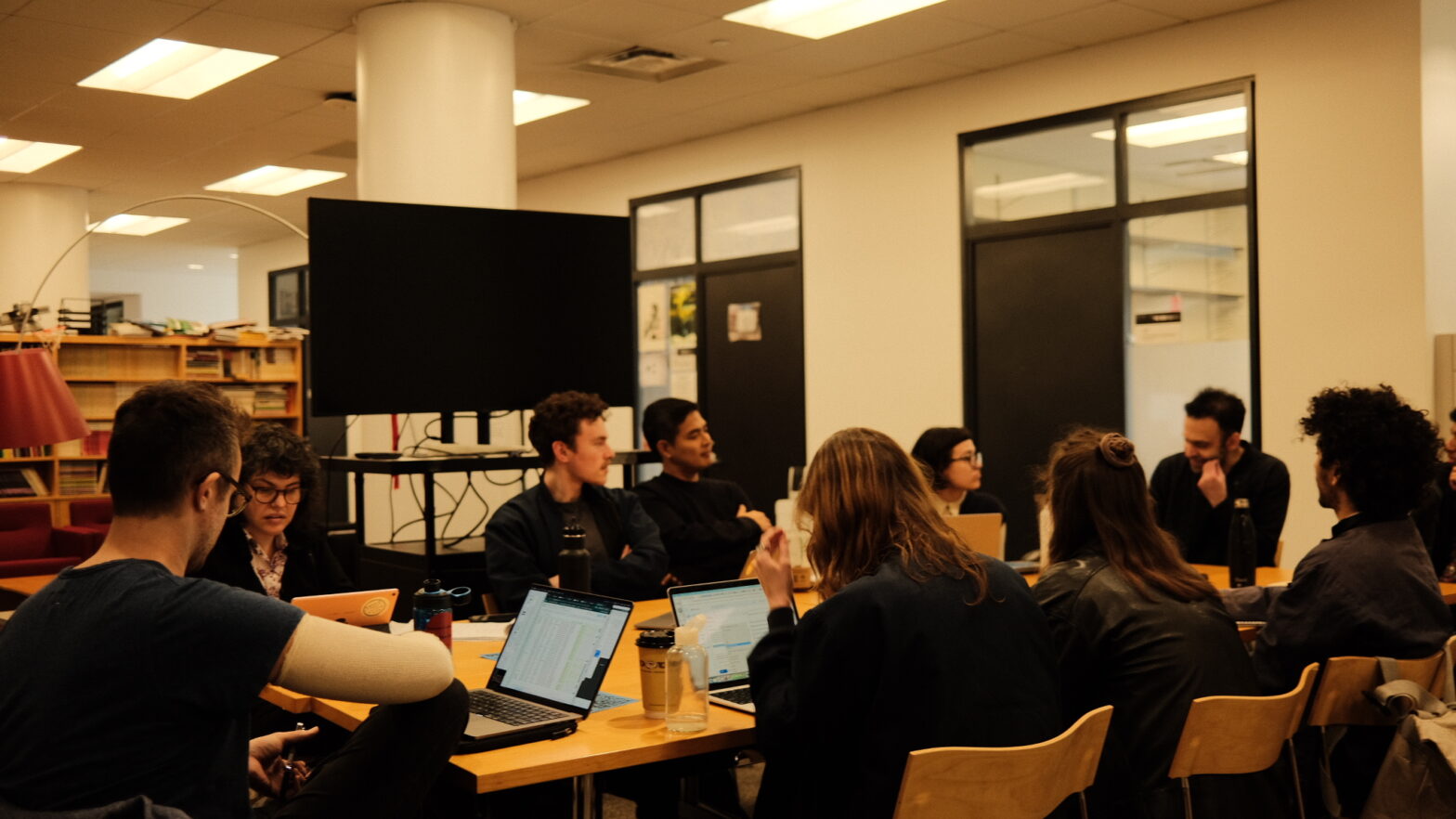This story was updated on April 14th, 2023 at 07:00 p.m.
Nearly every Friday afternoon, members of the union for Student Employees at The New School (SENS) gather on the ninth floor of the New School’s Vera List Center in preparation. With the August expiration date for their current contract nearing, the group is gearing up to meet the university for another round of negotiations for a new collective bargaining agreement.
The union represents academic student workers — tutors, research and teaching assistants, teaching fellows, research associates, and course assistants — and is expected to begin bargaining for a new contract in the summer.
On Mar 28, the group elected 10 academic student workers to represent the union in contract negotiations with the university. The bargaining committee includes four members from the New School for Social Research, and two members each from the School of Public Engagement, Parsons School of Design, and Eugene Lang. The committee is also responsible for creating a new contract for the union, though they have not yet created a concrete list of demands.
Union leadership originally planned to have a bargaining committee organized and working on demands for a new contract by the Fall of 2022. However, the union was set back by the historically long part-time faculty strike. With SENS falling under the same local union, UAW Local 7902, many student employees brought their own work to a halt in solidarity with the striking professors.
When the adjunct faculty won a new collective bargaining agreement in early Dec., SENS leadership quickly began making preparations for their own round of negotiations with the university.
“One of the main things that we tried to do to prepare for the new contract was to rebuild this organizing committee,” SENS unit chair Arya Vaghayenegar said. Their Friday meetings focus on member outreach and the next steps of the contract formation and negotiation process.
“A union is nothing but its members,” said Vaghayenegar. But consistent engagement is no easy task for a union whose roster changes every semester.
“In any sense, members are in two-year master’s programs, and they’re just getting on their feet, you know, on the ground here, and it’s difficult to get in contact with them quickly. That’s always exacerbated by The New School’s inadequate responses to information requests,” said bargaining committee member Aaron Berman.
As discussed in a recent meeting, union leadership attempted to gain access to a list of academic student workers who had graduated, but their information request was denied by the university for an unknown reason. The list could have made the member outreach process much quicker, as their quick turn-over rate makes it difficult to discern which of their members are still currently working.
With these difficulties in mind, the bargaining committee and union leadership put out a survey that aims to allow both current and recently graduated union members to share issues they care about and provide details for demands they wish to see filled in their next contract. The survey may be critical in creating a contract that reflects the needs and desires of everyone in the union as they develop their list of demands for the university.
Emmanuel Auerbach-Baidani, a member of the bargaining committee, said that they will wait until they process the results of the survey to come up with a list of demands, but there are concerns that union leadership already plans to address. “There’s some basic stuff that is always of concern – pay with the rising cost of living, healthcare…as well as job security,” Auerbach-Baidani said.
They are also looking to address more specific needs, “The age at which SENS members often are includes some stuff like becoming parents, and there’s some particularities to that that a contract should probably address,” Auerbach-Baidani said.
The union hopes the university will respond well during negotiations, but they are preparing for anything, as forming the union alone was difficult. It took two years of organizing, a strike, and months of grueling negotiations for university leadership to recognize them as a union and agree to their demands. In 2018, a year after the union was officially formed, the student workers achieved a contract with the university that improved their working conditions. Along with better pay and more comprehensive benefits, the union provided academic student workers with a strong collective power to better protect themselves against the administration.
According to Vaghayenegar, before unionizing, student workers often worked beyond their scheduled hours, and did work outside their job description – like picking up laundry for the professors they assisted – all while lacking avenues to speak up against their unfair conditions. “Because the relationship with their faculty is very sensitive, because many of them become their mentors, they had to do it,” he said.
With the potential battle for a new contract looming, union members hope the wider New School community can come together to support and engage with one another. Vaghayenegar and other union members believe that despite all having varying wants and needs, students, faculty, and staff should work in solidarity with each other. They encourage those in and out of the union to attend their weekly organizing meetings and participate in future union events.
“A win for each one will be a win for others if we work together, try to understand each other, recognize the difficulties, and actively support each other. It is only through that, that we can actually, all of us, become stronger,” Vaghayenegar said.
Correction: A previous version of this article incorrectly stated the name of the union as the “Union of Academic Student Workers”, rather than “Student Employees at The New School.” Though only academic student workers are unionized under SENS, and not all student employees.








Leave a Reply